Guidance regarding basic Islamic issues that Hazrat Amirul Momineen, Khalifatul Masih Vaa, has given on various occasions in his written correspondence and during MTA programmes is being published officially below for everyone’s benefit.
What is the correct ruling on raf‘ al-yadayn for the opening takbir in salat?
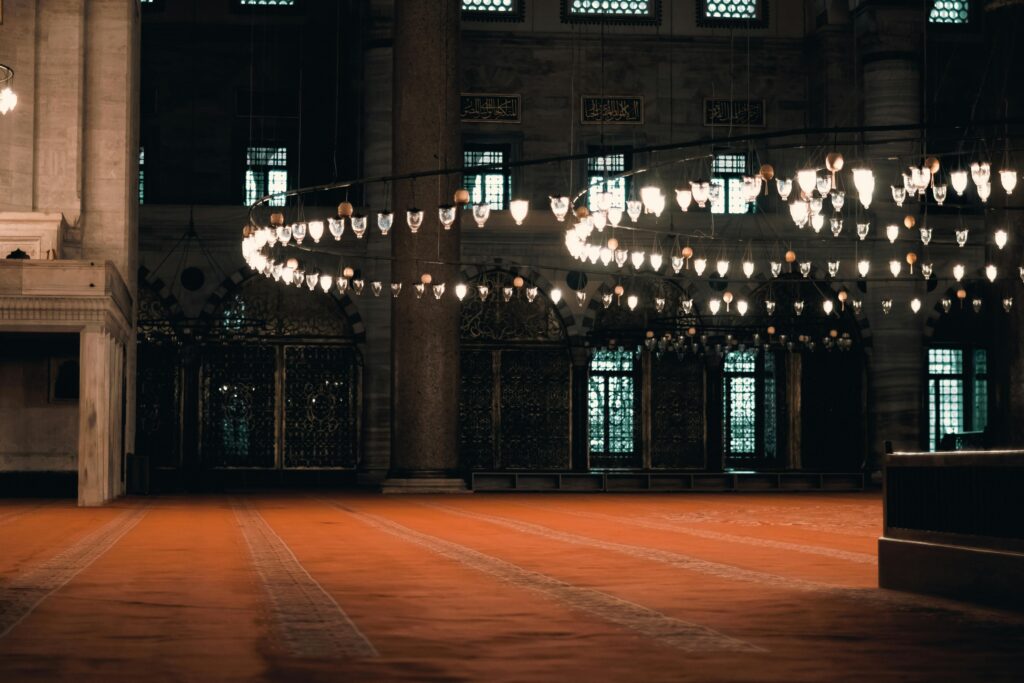
Someone from Libya wrote to Hazrat Amirul Momineen, Khalifatul Masih Vaa: “When commencing the salat, should one perform raf‘ al-yadayn and raise the hands while saying the takbir-e-tahrimah or the opening takbir, or not, and what is the proof for it?
“Also, is it permissible to wear wedding rings? Some people say that this is a custom of the Christians and there should be no resemblance to them.”
In his letter dated 31 July 2023, Huzoor-e-Anwaraa provided the following guidance concerning these questions:
“Raising both hands to the ears while saying the takbir-e-tahrimah is established by the sunnah of the Holy Prophetsa. It is not necessary to raise the hands on any other occasion during the prayer besides the takbir-e-tahrimah. It is established from the continuously practised sunnah of the Holy Prophetsa that he would raise his hands to his ears only at the time of the takbir-e-tahrimah. Accordingly, it is narrated from Hazrat Bara’ ibn ‘Azibra that when Allah’s Messengersa commenced the prayer, he would raise his hands close to his ears; then he would not repeat it for the remainder of the prayer. Similarly, on one occasion, Hazrat ‘Abdullah ibn Mas‘udra said to the people, ‘Shall I not demonstrate for you the salat of the Holy Prophetsa?’ He then performed the prayer and did not raise his hands except on the first occasion. (Sunan Abi Dawud, Kitab as-salah, Bab mun lam yadhkuri r-raf‘a ‘inda r-ruku‘; Sunan at-Tirmidhi, Kitab as-salah, Bab ma ja’a anna n-nabiyyasa lum yarfa‘ illa fi awwali marrah)
“Following the example of his lord and master, the Most Holy Prophet, Hazrat Muhammad al-Mustafasa, the practice of the Promised Messiahas was also that he would only perform raf‘ al-yadayn at the time of the takbir-e-tahrimah. Accordingly, Hazrat Sahibzada Mirza Bashir Ahmadra writes:
“‘Khawaja Abdur Rahman Sahib, a resident of Kashmir, stated to me in writing that, ‘My father used to say that when the Promised Messiahas intended to offer salat, he would bring the thumbs of his hands up to his ears. That is, the two would touch each other.’’ (Sirat-ul-Mahdi, Vol. 1, February 2008, pp. 744-745)
“Regarding the performance of raf‘ al-yadayn in other parts of the salat besides the takbir-e-tahrimah, the Promised Messiahas states:
“‘There seems to be no particular harm in it, whether one does it or not. In the ahadith, it is mentioned in both ways and the same conclusion is drawn from the practices of the Wahhabis and the Sunnis, because one group performs raf‘ al-yadayn and the other does not. It seems that Allah’s Messengersa performed raf‘ al-yadayn at one time and later abandoned it.’ (Al Badr, No. 11, Vol. 2, 3 April 1903, p. 85)
“The practice of the Promised Messiahas concerning raf‘ al-yadayn was the very practice that the Holy Prophetsa adhered to with constancy. Accordingly, Hazrat Sahibzada Mirza Bashir Ahmadra writes:
“‘Mian Abdullah Sahibra of Sanaur related to me that, ‘In the beginning, I was a strict ghayr muqallid [i.e., one who does not follow a specific school of Islamic law] and was very particular about raf‘ al-yadayn and saying amin aloud. Even after meeting the Promised Messiahas, I continued this practice for a long time. After a considerable period, I once prayed behind him. After the salat, he smiled at me and said, ‘Mian Abdullah, you have acted upon this sunnah a great deal now,’ and his gesture was towards raf‘ al-yadayn.’’ Mian Abdullah Sahibra further says, ‘From that day on, I ceased to perform raf‘ al-yadayn and also stopped saying amin aloud.’ And Mian Abdullah Sahibra further relates that, ‘I never heard the Promised Messiahas perform raf‘ al-yadayn or say amin aloud, nor did I ever hear him recite the basmalah aloud.’ (Sirat-ul-Mahdi, Vol. 1, February 2008, p. 147)”
What is the Islamic ruling on wearing wedding rings?
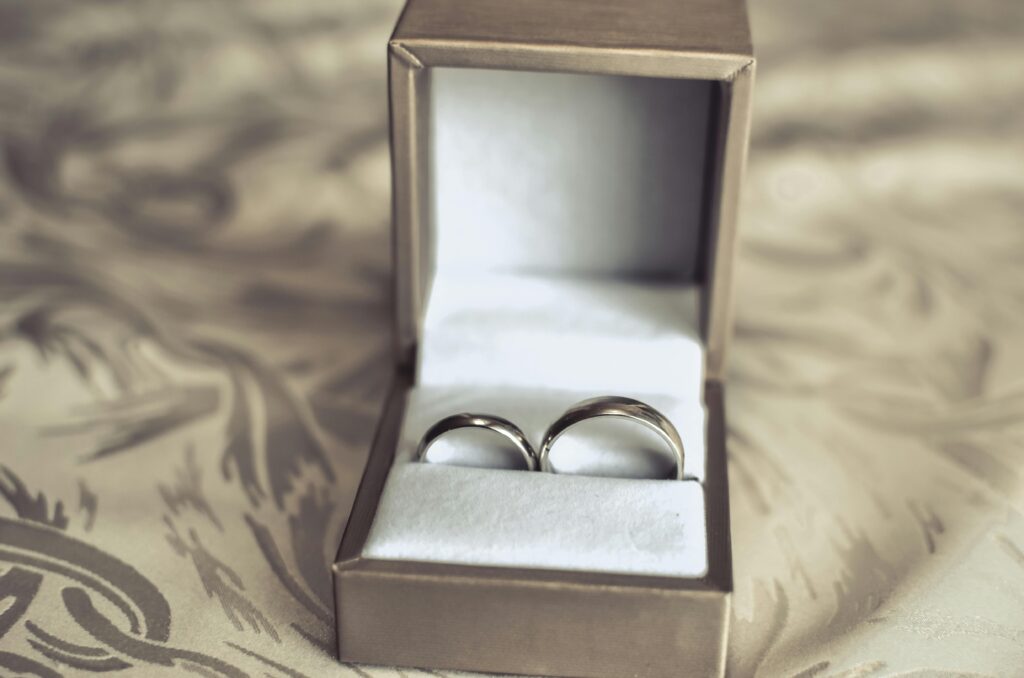
“As for the question of wearing a wedding ring, there seems to be no harm in it. However, it is not a religious requirement, nor is there any difference in this for men and women. This is because, from a religious standpoint, a man is only enjoined to give the mahr according to his means and to hold a wedding feast [walimah]. There is no command for either the man or the woman to wear a ring. Some people have adopted the practice of wearing a ring to ostensibly express the strength of the bond, while others do not do so. Among Ahmadis, the practice of wearing a ring with the inscription ‘اَلَیۡسَ اللّٰہُ بِکَافٍ عَبۡدَہٗ’ [‘Is not Allah sufficient for His servant?’] is common.
“Yes, to perform unnecessary rituals at weddings and to spend extravagantly and recklessly on them is a disapproved of act and I repeatedly draw attention to this in my various sermons and addresses. Recently, in a virtual mulaqat, I also drew attention to the fact that a believer should abstain from extravagant spending on such rituals.”
Is ‘house flipping’ (buying, renovating and selling) a permissible business in Islam?

Someone from Canada wrote to Hazrat Amirul Momineen, Khalifatul Masih Vaa, asking whether it is permitted for us to have a business of buying, renovating and then selling houses.
In his letter dated 7 August 2023, Huzoor-e-Anwaraa gave the following reply to this question:
“If there is no admixture of interest-based money in this business, then there is no harm in conducting such a business. This is because in all the stages of buying a house, fixing it up and then selling it on the market, a person also puts in effort, invests their time and spends their own money. Therefore, there is no harm in it.
“As for the rest, the permission that the Jamaat has given for buying a house through the method of mortgage, which is prevalent in Western society, is only for a state of compulsion and necessity and is limited to one house for personal residence only. To buy house after house as a business through this mortgage procedure, or to run a business of buying houses under this procedure, renovating them and selling them, is not correct. The Jamaat does not encourage this matter; rather, it forbids it, because it involves interest-based transactions.
“A central committee is deliberating on various contemporary financial matters such as bank loans, the stock market and mortgages in light of the guidance of the Promised Messiahas. When a decision is reached, the members of the Jamaat will be informed of it, insha-Allah.”
Why is there no ‘Promised Grandson Day’ celebrated by Ahmadis?
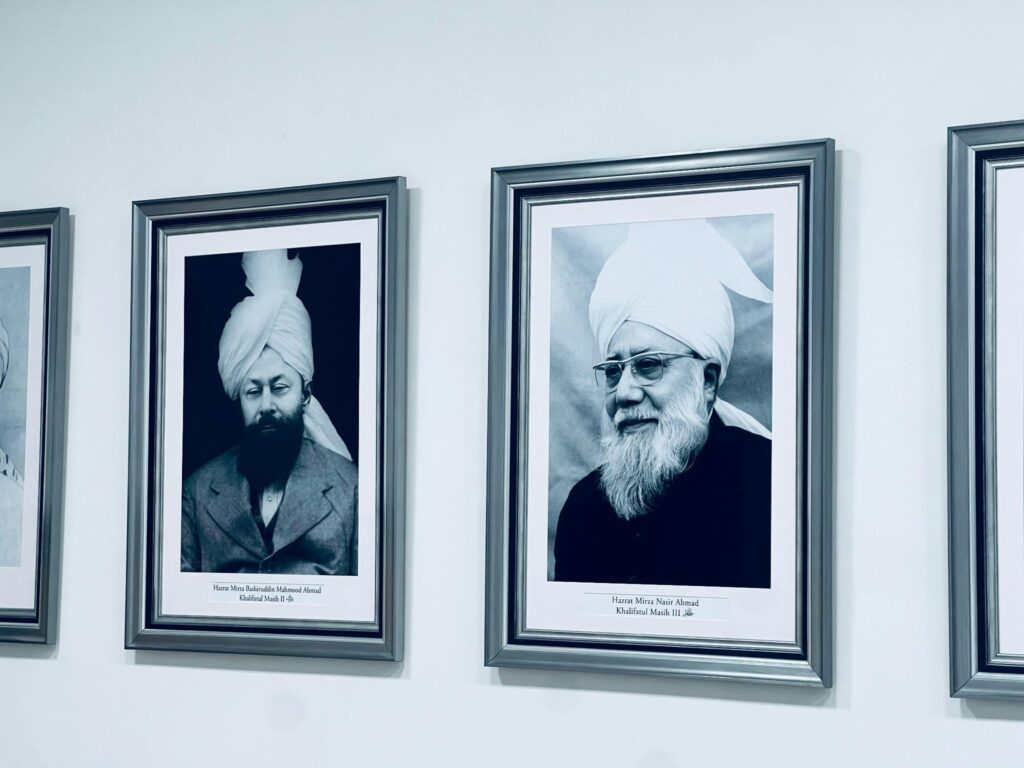
Someone from the UK wrote to Hazrat Amirul Momineen, Khalifatul Masih Vaa: “We commemorate 20 February as Musleh-e-Maud Day upon the fulfilment of the prophecy of the Promised Messiahas regarding the Promised Son. Hazrat Khalifatul Masih IIIrh was the Promised Grandson of the Promised Messiahas, who was also given the name ‘Yahya’ in a divine revelation. So, should we not also commemorate a ‘Promised Grandson Day’?”
In his letter dated 7 August 2023, Huzoor-e-Anwaraa provided the following guidance on this matter:
“We do not commemorate 23 March and 20 February as anyone’s birthday. Rather, the Ahmadiyya Muslim Jamaat commemorates Promised Messiah Day and Musleh-e-Maud Day on these dates because they are connected with two magnificent prophecies.
“On 23 March, the fourteen-hundred-year-old prophecy of our lord and master, the Most Holy Prophet, Hazrat Muhammad al-Mustafasa, concerning the Muhammadan Messiah was fulfilled and his most ardent devotee, the Promised Messiahas, initiated the Ahmadiyya Muslim Jamaat by taking the pledge of allegiance from his pure-hearted Companions for the revival and renaissance of the religion of Islam. And on 20 February, Allah the Exalted, accepting the humble supplications and heartfelt prayers of the Promised Messiahas during his forty-day spiritual retreat, bestowed upon him the glad tidings of a magnificent son in the form of the Musleh-e-Maud, as a sign of the truthfulness of the religion of Islam and the veracity of the Most Holy Prophet, Hazrat Muhammad al-Mustafasa, for the service of the religion of Islam and for conveying the message of Islam to the corners of the earth. For the publication of this prophecy, he also published a leaflet and declared it to be a special divine sign. Thus, we commemorate these days because they are related to two magnificent and extraordinary signs.
“As for the rest, concerning the prophecy of the Promised Grandson [nafilah-e-maw‘ud], Allah the Exalted graced the Promised Messiahas with numerous such prophecies and abundant signs. The Holy Prophetsa himself had also said that the Promised Messiah would marry and would have offspring. Allah the Exalted also bestowed upon the Promised Messiahas the prophecy of blessed progeny. However, we do not commemorate any day upon the fulfilment of these prophecies, because every prophecy has a rank and a station. And the advent of the Promised Messiah and the glad tidings of the Musleh-e-Maud are two extraordinary and magnificent divine signs that are commemorated as a memorial so that we may understand the objectives of these prophecies, make the matters related to them a part of our lives and become those who fulfil the responsibilities that arise as a result of them in the most excellent manner. May Allah the Exalted grant all members of the Jamaat the capacity to fulfil these responsibilities as they rightfully deserve. Amin.”
Who owns the house in an Islamic marriage according to the sharia?
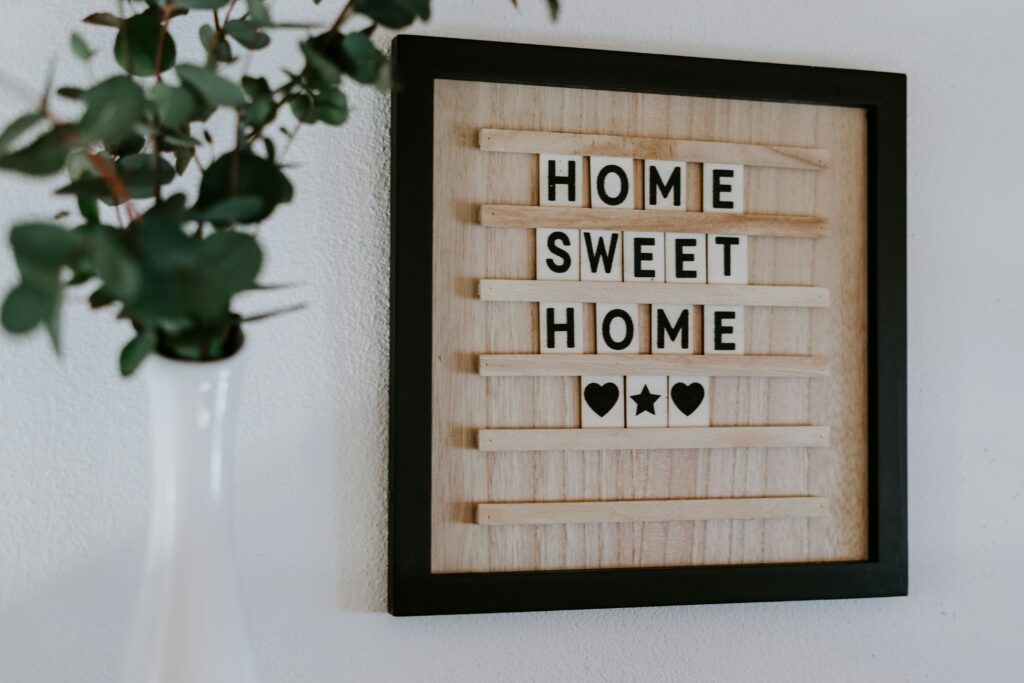
A lady wrote to Hazrat Amirul Momineen, Khalifatul Masih Vaa: “If a married couple buys a house together and the husband pays the mortgage and bills, does the house belong only to the husband according to Islamic teaching? I believe that for a peaceful life, the term ‘our house’ should be used, because the woman takes care of the house and raises the children. So, does she do this only to hear that the husband can evict her from the house at any time by giving her the mahr? Therefore, should the house not be legally divided equally between the husband and wife?”
In his letter dated 9 August 2023, Huzoor-e-Anwaraa gave the following guidance on this matter:
“In the sharia, a house belongs to the person who buys it. Therefore, if the husband and wife have bought the house together, then both of them will be the owners of that house, and in that case, both will also be bound to pay the various financial dues of that house. However, if only the husband has bought the house and he is the one paying its various dues, then this house, according to the sharia, will be deemed the property of the husband. Yes, in the event of the husband’s death, if the husband has children, the wife will receive an eighth share from it and if the husband has no children, the wife will receive a fourth share.
“As for the matter of dealing with wives in the affairs of life, Islam has given very clear teachings in this regard. Accordingly, Allah the Exalted states in the Holy Quran:
وَعَاشِرُوهُنَّ بِالْمَعْرُوفِ
“‘And consort with them in kindness.’ (Surah an-Nisa’: Ch.4: V.20)
“Then, the Holy Prophetsa also said:
خَيْرُكُمْ خَيْرُكُمْ لِأَهْلِهِ
“‘The best of you is he who is best to his wife’. (Sunan at-Tirmidhi, Kitab al-manaqib, Bab fadli azwaji n-nabiyyisa)
“Furthermore, enjoining kind treatment of women, he said:
“‘Beware! I enjoin you to be good to women, for they are indeed like captives in your charge. You have no right over them beyond this, that you may consort with them, unless they commit a manifest indecency. If they do so, then leave them separate in their beds and chastise them in a way that causes no injury. Then, if they become obedient to you, seek not a way against them. Attend! You have a right over your wives and they have a right over you. Your right over them is that they should not allow anyone you dislike to sit upon your beds, nor permit anyone you dislike to enter your homes. And their right over you is that you should feed them in the best manner and provide them with the best clothing.’ (Sunan at-Tirmidhi, Kitab ar-rada‘, Bab ma ja’a fi haqqi l-mar’ati ‘ala zawjiha)
“The Promised Messiahas also drew great attention to the rights of wives and, on various occasions, enjoined his followers to treat their wives with kindness. Accordingly, he states:
“‘In the Holy Quran, there is a command that if a man, out of courtesy and benevolence, gives his wife even a mountain of gold, he should not take it back in the event of a divorce. From this, it is evident how greatly women have been honoured in Islam. In one sense, men have been made the servants of women.’ (Chashma-e-Ma‘rifat, Ruhani Khazain, Vol. 23, p. 288)
“Hazrat Maulana Abdul Karimra of Sialkot writes, ‘The Promised Messiahas used to say, ‘With the exception of indecency, you ought to bear with patience all the other improprieties and discourteous behaviour of your wives […]. I find it utterly shameful for a man to be in a state of conflict with a woman. God has made us men, and in reality, this is a completion of His favour upon us. The gratitude that we owe for this is to treat women with kindness and tenderness.’ On one occasion, there was mention of a certain individual’s rough nature and abusive language and that he was harsh in the treatment of his wife. On hearing this, the heart of the Promised Messiahas was deeply grieved and he said, ‘This does not behove our friends.’’ (Al Hakam, No. 2, Vol. 4, 17 January 1900, p. 3)
“Therefore, such excellent and balanced teaching does not exist in any other religion or society. The only deficiency is that it is not acted upon as it rightfully deserves. Therefore, every Ahmadi should pay great attention to acting upon it.”
What is the meaning of the hadith ‘He will be buried in my grave’?
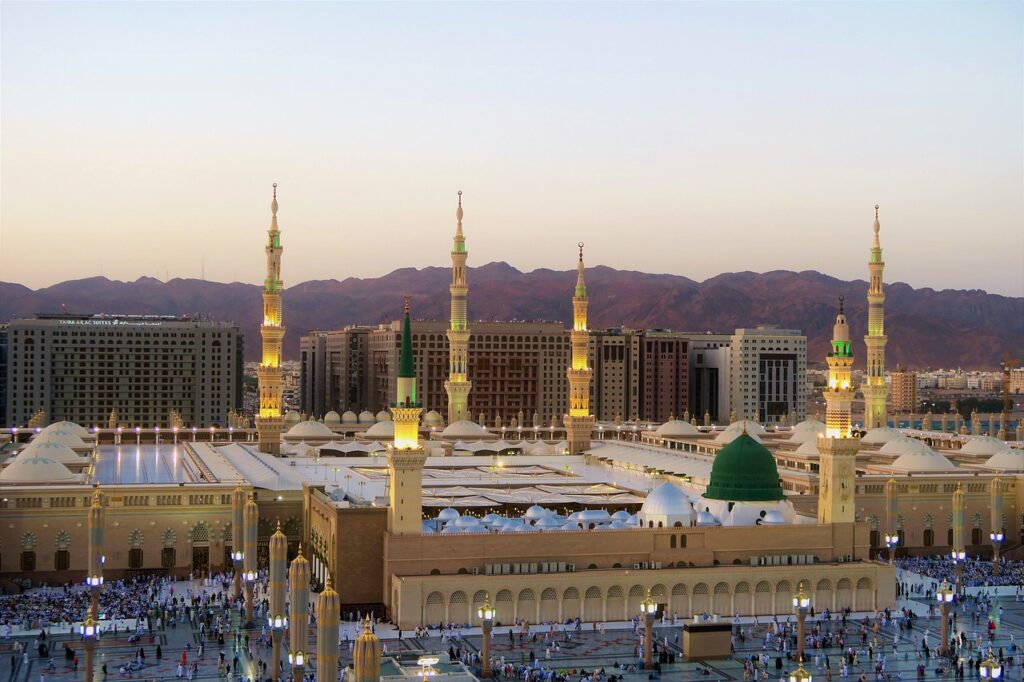
Someone from Nigeria, with reference to the hadith of the Prophetsa, یُدْفَنُ مَعِیْ فِیْ قَبْرِیْ (“He will be buried with me in my grave”), wrote to Hazrat Amirul Momineen, Khalifatul Masih Vaa: “Could this also refer to a resemblance in the deaths of the Holy Prophet Muhammadsa and the Promised Messiahas? This is because, just as the Promised Messiahas had to relieve himself before his demise and the opponents raised absurd objections about it, in the very same way, it is mentioned in some ahadith that the Holy Prophetsa also had to relieve himself before his death.”
In his letter dated 15 August 2023, Huzoor-e-Anwaraa provided the following guidance on this matter:
“The resemblance you have tried to establish between the Most Holy Prophet, Hazrat Muhammad al-Mustafasa and his most ardent devotee, the Promised Messiahas, from the aforementioned hadith is not correct. The true exegesis of this hadith is the one that has been given by the Promised Messiahas. He states:
“‘And to interpret the prophecy that, after his demise, the Promised Messiah will be interned in the grave of the Holy Prophet, may peace and blessings of Allah be upon him, to mean that – God forbid – the grave of the Holy Prophet, may peace and blessings of Allah be upon him, will be reopened, is the error of the literalists. Such concepts are replete with insolence and disrespect. Rather, it means that the Promised Messiah will be so close to the Holy Prophet, may peace and blessings of Allah be upon him, in nearness of station that, after his death, he will achieve the rank of nearness to the Holy Prophet, may peace and blessings of Allah be upon him and his soul shall meet the soul of the Holy Prophet, may peace and blessings of Allah be upon him, as if the two were in the same grave. This alone is the true meaning [of this prophecy]; if someone wants to interpret it differently, it is up to him.
“‘Spiritual people know that after death, physical proximity has no meaning. On the contrary, it means that everyone who has spiritual nearness to the Holy Prophet, may the peace and blessings of Allah be upon him, his soul is brought close to the soul of the Holy Prophetsa, as Allah the Almighty says:
فَادۡخُلِیۡ فِیۡ عِبٰدِیۡ وَادۡخُلِیۡ جَنَّتِیۡ
“‘[‘So enter among My chosen servants and enter My Garden. (Surah al-Fajr, Ch.89: V.30-31)]’ (Haqiqat-ul-Wahi, Ruhani Khazain, Vol. 22, p. 326)
“As for the rest, the call of nature is one of the necessities of life that Allah the Exalted has made incumbent upon every human being; to make this a means of objection against any sent one of God is an act of sheer ignorance. Therefore, in my view, it is not correct to make this a means of resemblance either. We cannot use something as a point of similarity which ignorant opponents have already exploited as a cause for objection against one of our beloveds. To do so would be to furnish the opponents of our other beloved – our lord and master, the Most Holy Prophet, Hazrat Muhammad al-Mustafasa – with a pretext to cast an aspersion upon his pure personage.”
(Compiled by Zaheer Ahmad Khan, Head of Records Department, Private Secretariat, London and translated by Al Hakam)

